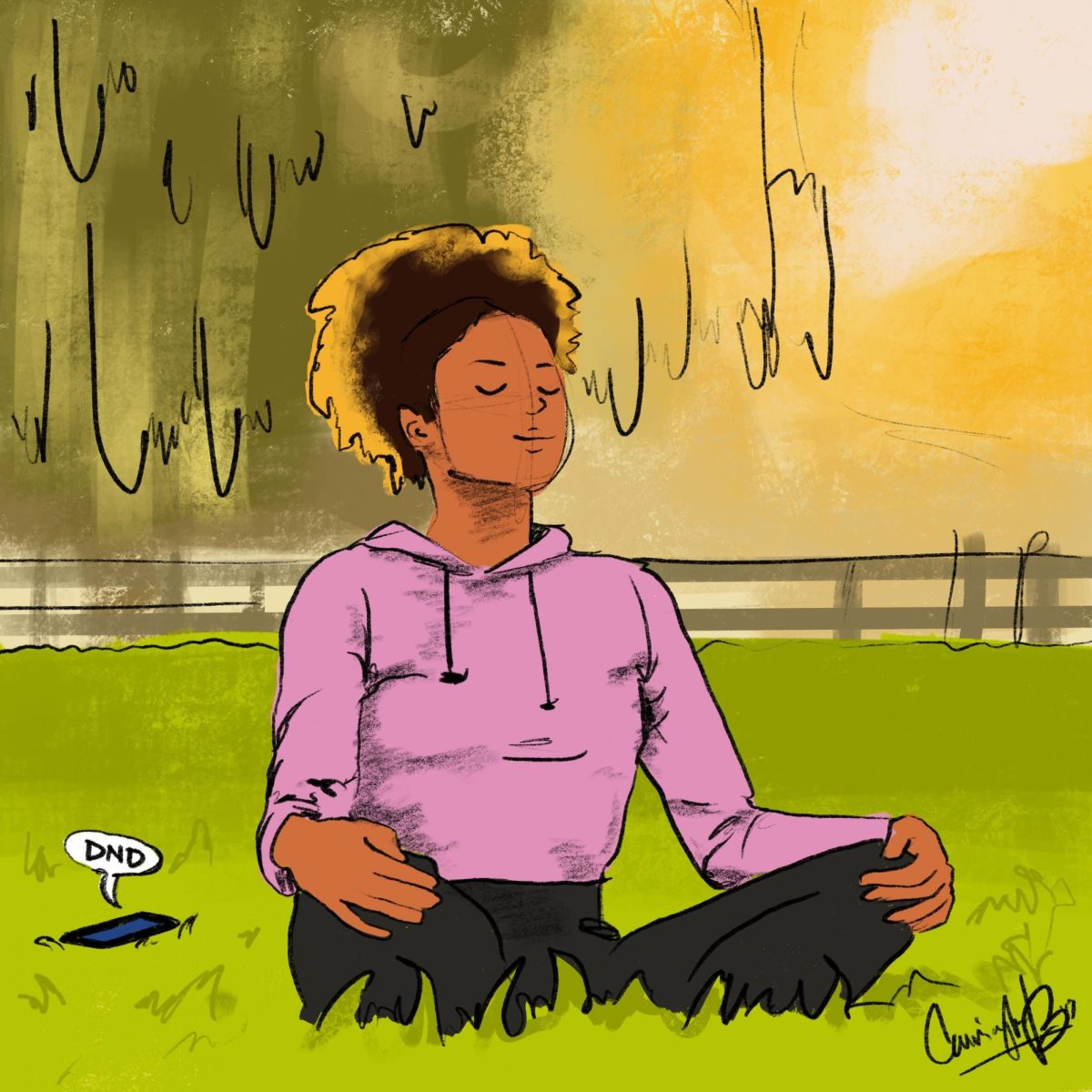I take great pleasure in setting goals for my New Year’s resolutions, but every year is the same — I inevitably forget about them by the time spring arrives. This happens for a lot of other people as well. I am going to repeat myself like I do every year, but I really want to stick to my resolution this time.
Most resolutions I hear from family, friends or online communities consist of bettering themselves. Everyone starts going to the gym or cutting out sugar. For others, their form of betterment is about holding themselves accountable by saving money, spending less on non-essentials. My New Year’s resolution is a different form of bettering myself. I want to improve my digital well-being.
The use of technology, specifically smartphones, has greatly advanced in my lifetime. I’m not saying this is inherently a negative thing, but I think there is a balance between phone usage that often becomes unstable. I want to remedy that — at least a little bit — for myself.
My biggest issue is doomscrolling on TikTok. Though I learn a lot from the app and can connect with communities that are harder to reach typically, I find myself getting lost in the constant push of entertainment, and that can be astronomically draining. My nightly routine includes mindlessly scrolling through TikTok, and before I know it, I’ve spent hours on the app when I should be sleeping.
The same thing happens in the morning. I reach for my phone and go to TikTok because I know it will give me immediate stimulation. But am I really getting enough out of it by making it the first thing my brain connects to? I guess it helps me wake up, but I could be doing anything else, like stretching or reading a few pages of a book.
I have connected with other college students who feel the same way. We are very attached to our phones. I bet younger teenagers might have the same experiences. But what I feel is worse is the idea that, as a society, we are losing the ability to connect without using technology.
I’m at a desk, ready for the first day of a new semester. I get my notebook out, take a sip from my water and wait. I set my phone on the desk, refusing to pick it up. I look at the people around me and almost everyone has their nose in their phone. Why does it feel so weird that I am just sitting and waiting? Before smartphones, this is what people did! We talked to the strangers beside us! Imagine that! I get that our phones could help ease social anxiety in this classroom setting, but I am sick of using it to avoid normal occurrences.
There’s also something to be said about how digital well-being practices produce different effects. Like unfollowing your ex on social media so you don’t see their posts anymore because something still aches inside. Or maybe you witness hateful comments about someone you know and love, and so you block the user. Some people delete their entire social media accounts.
Digital well-being can mean many things to so many people. Everyone should take a step back to look at their phone and internet usage and find even the smallest thing they can improve upon. In the long run, I really think that humans will find that we are a little bit better off by decreasing our technology use.
My first step is applying the app usage setting in my phone and setting TikTok to 1 hour a day — I’ve stuck by it! I’ve also unfollowed some brands and companies because I really do not need to know when a new perfume is going to launch in stores. I also use Snapchat way less than I did a few years ago. I might post my story here and there, but streaks do not exist for me anymore, and it feels great.
I also am choosing to set my phone down when I am eating a meal at home. This has been especially difficult when I am alone because my brain tends to wander and I inevitably get the urge to Google something. It is easier when I have a friend who is also eating with me, but when I am alone, it is difficult to stay focused on my food. I love food and I need to appreciate it more on its own.
There is so much good that can come from technology. But there are also a lot of not so good things. That’s why this topic can be so diverse in opinions, and I do not think there is a one-type-fits-all approach to digital well-being.
I hope this article inspires you. I’ve often felt ashamed about my dependency on my phone, and though I’ve just started to remedy it, I can feel my improvement, and I am proud of myself.
I miss the social connections we used to make without smartphones — and yes, I realize I am basically referring to my entire childhood where everyone was friends with everyone at recess — but our grandparents sure didn’t have accessibility to technology when they were young, and not even our parents! We are the generation that has had internet exposure since childhood and I can only imagine what our kids and grandkids will have access to in the future. So, I am making an effort today, and I think you should, too.
Abby Dobry writes mostly about the arts. Write to her at abd61@pitt.edu




